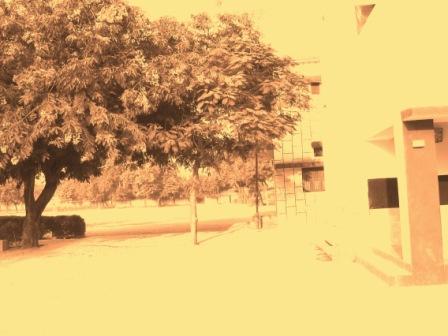Bas ek zindagi si hai usse...
Na uske saath hoon na tanhaa,
Ajab dillagi si hai usse...
Khoye un aakhon mein zamaane guzre,
Ab talak bekhudi si hai usse...
Kaun hua kiska baqaul-e-Firaaq,
Ummeed aakhri si hai usse... [4]
Is zindagi-e-gunaah ke beech,
Ek paakeezgi si hai usse...
Zindagi yoon bhi guzar hi jaati,
Haan ek dilchaspi si hai usse...[6]
Main kahaan khatam wo kahaan shuru,
Kaisi be-takallufi si hai usse...[7]
Hain sitaare kab se gardish mein,
Meri duniya thami si hai usse...
Har taraf dard dhoondhta hai mujhe,
Dil mein par ek khushi si hai usse...
Ab jo hosh hai to us hi se hai,
Jo hai deewaangi si hai usse...
Masjid-o-mandir se kya lagaaein dil,
Qurbat roohaani si hai usse...[11]
Kya sitaare nazar mein tikte,
Jab aisi chaandni si hai usse...
Mujhko maaloom hai sab hai to wahi,
Par har ek shay nayi si hai usse...
Wo jo ek mod par gayaa chhod kar,
Har taraf ek kami si hai usse...
Wo mila jo baad-e-pyaas-e-umr,
To ek tishnagi si hai usse...Hai ek silsilaa-e-naummeedi,
Kadi jiski bandhi si hai usse...
Ab duaon mein hi naam hai uska,
Namaaz ki paabandi si hai usse...[17]
Chalo is janam jo hua so hua,
Aakhirat to bani si hai usse...[18]
Hain us hi raah-e-siyaah par hum,
Duur wahi roshni si hai usse...[19]
-----
[4] "Baqaul-e-Firaaq": As stated by Firaaq. References the lament by Firaaq Gorakhpuri "Kisi ka yoon to hua kaun umr bhar phir bhi", which I translated quite a while back.
[6] Dilchaspi: interest / curiosity.
[7] Be-takallufi: frankness / informality.
[11] Qurbat: continual approach and coming nearer, implying a connection / link
[17] Pabandi: regularity. Roohaani: spiritual.
[18] Aakhirat: hereafter / afterlife.
[19] Sometimes an entire ghazal can be held up for long because the right maqtaa (closing couplet) does not manifest itself...finally it did - how many interpretations are possible for this?






9 comments:
Hain ussi rah e siyaah per hum >> seems to speak of longing, yearning... The quintessential part of the journey that has always been there. Durr wohi roshni si hai uss se >> the hope of union.
Beautiful poetry, awesomely engaging :) Somehow reminds me of Shaam e firaq ab na pooch, aaii aur aa Kay dhal gai...
Love the Firaq Gorakhpuri poetry too! Thanks
Anonymous: Thanks for the kind words and the interpretation.
It is interesting to experiment with the word 'siyaah' as both a self-reference and with its 'dark'/'black' meaning as well...so 'raah-e-siyaah' could simultaneously read 'the road of Siyaah (the poet)' and 'the dark road'/'road of darkness'...
Ah, the hope of union...but what if the 'raah-e-siyaah' is only because of the 'roshni' luring one on...a darker interpretation...
I like your self-interpretation and how it may refer to your own journey. Also, 'the dark road' as I see it; could be, in Robert Frost's words, "the road less travelled".
And your 'darker interpretation' reminds of Ghalib- Ye na thi hamari kismet ke visaal e yaar hota.. which also has that other very intersting verse- koi mere dil se pooche tere teer e neem Kash ko. Anyway, the fun is in the journey! :) ..Lovers may feel burnt out but Love's flame is always ablaze. I guess it keeps one going. In other words, if love is real it is self sustaining, doesn't even really need any 'roshni' to beckon it.. what do you say?
Anonymous: Waah! Well said!
Very thoughtful
Such emotion yet so subtle an expression of it...it's beyond words, Siyaah!
loved every word and i am so happy that the poem 'jalwa baqadr zarf' tracked me to your blog.
what engaged and urge me to comment was this poem and the most important thing was 'colour'.
Black :) as i say this is my colour now.
Stay Blessed and keep it up.
Sheen: Thank you for your kind words!
Madeeha: Thanks - glad that the earlier translations still bring people here! And yes, Black is the colour.
Post a Comment